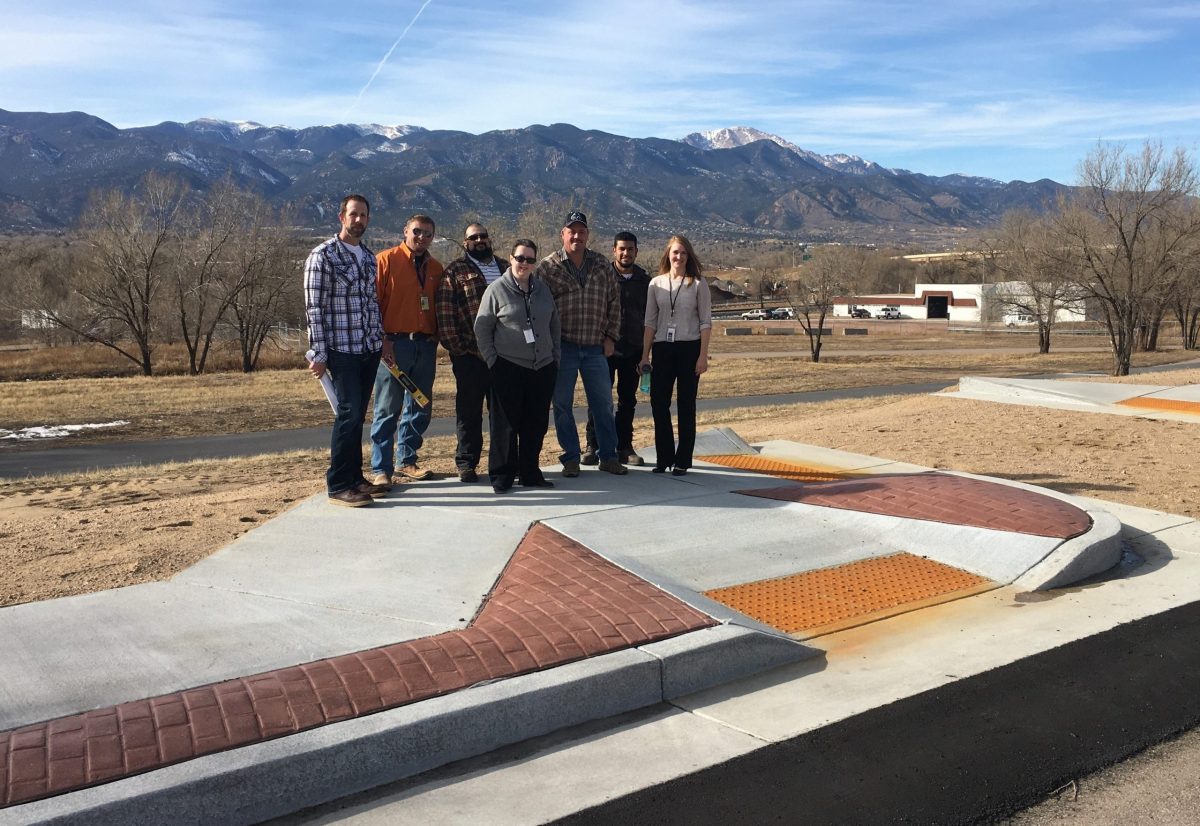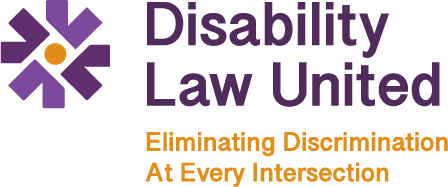Since 2014, Disability Law United has resolved class action litigation against multiple cities in regard to inaccessible pedestrian routes. Specifically, these cases challenged the consistent failure of these cities to comply with the requirements of the Americans with Disabilities Act (ADA) and Section 504 of the Rehabilitation Act (Section 504) for accessible curb ramps at the corners of intersections. These federal accessibility laws require that when a city repaves or otherwise alters streets, curb ramps adjacent to those streets must be installed or remediated to be brought into compliance with current standards. In addition, regardless of street alterations, cities must ensure their pedestrian routes comply with the program accessibility requirements of these laws. When cities fail to comply with these requirements, people with mobility disabilities are unable to use their city’s sidewalks to freely travel to work, restaurants, grocery stores, doctor’s offices, parks, and a host of other locations which nondisabled people routinely access by walking. While equal access to travel by sidewalk is always important, it has become even more critical during the pandemic as public transportation options became less available and less preferred due to health risks.
Each of these cases has been resolved by reaching a settlement agreement and then entering a consent decree which makes the agreement enforceable by the court. These decrees require cities to install and remediate tens of thousands of curb ramps over multi-year periods. Disability Law United then remains involved with each city to monitor compliance with the agreement. While specific monitoring activities vary from city to city, common measures include reviewing data to ensure that the annual number of agreed upon ramp installations/remediations is being met and that each ramp complies with all ADA requirements or fully meets the narrow exception to full compliance. In addition, we review whether a city’s curb ramp request system is working as agreed.
As a result of Disability Law United taking on the barriers to accessible pedestrian travel in the cities below, thousands of people who use wheelchairs or other mobility devices can now equally access their city’s sidewalks to travel to a multitude of destinations. Disability Law United has ongoing investigations of similar inaccessible curb ramp issues in other cities and we anticipate reaching similar resolutions.
King v. City of Colorado Springs

In 2019 Disability Law United and co-counsel Benham-Baker Legal, on behalf of a class of people with mobility disabilities, finalized a settlement with the City of Colorado Springs, Colorado. The city committed to installing over 15,000 accessible curb ramps throughout the city in the next 14 years. In Colorado Springs, there are approximately 24,000 people with mobility disabilities who use wheelchairs, walkers, scooters or other mobility devices to get around. The photo above shows the City’s curb ramp training facility, part of its dedicated efforts to bring these elements into compliance. This outdoor facility contains several ramps, some compliant and some purposely noncompliant. These ramps give inspectors the opportunity to learn more about the ADA’s requirements and to test their assessment skills in a controlled environment.
Relevant Documents:
Lashbrook v. City of San Jose
Disability Law United, along with co-counsel Goldstein, Borgen, Dardarian & Ho (GBDH) , reached a landmark settlement with the City of San Jose on behalf of a class of persons with mobility disabilities. The settlement requires San Jose to install or remediate over 27,000 curb ramps throughout the City over the next eighteen years, and to appropriate more than $130 million to fund this work. Importantly, class members are able to request curb ramp construction and remediation at specific locations according to this settlement. The settlement was approved on September 2, 2020.
Relevant Documents:
Denny v. City and County of Denver
Disability Law United and co-counsel Colorado Cross-Disability Coalition filed this class action alleging the City of Denver, Colorado, discriminated against people with mobility disabilities in violation of the ADA and Section 504 by failing to install and maintain curb ramps that are necessary to make its pedestrian right of way readily accessible to people with mobility disabilities.
The parties reached settlement to resolve claims relating to inaccessible curb ramps for individuals who use wheelchairs or other mobility devices. The settlement requires the City to install or cause the installation of a minimum of 1,500 curb ramps per calendar year until compliant curb ramps are in place at all locations within the City and County of Denver where street level pedestrian walkways cross curbs adjacent to City owned right of way. The Court granted final approval of the class action settlement on September 9, 2016.
Relevant Documents:
- Class Action Complaint
- Settlement Agreement
- Order Granting Preliminary Approval of Class Action Settlement
- Notice to All People with Disabilities Who Use Wheelchairs or Scooters in Denver
- Order Granting Final Approval
Hines v. City of Portland, Oregon
Disability Law United along with co-counsel Goldstein, Borgen, Dardarian & Ho (GBDH) and Portland Civil Rights Law Office file this class action against the City of Portland, Oregon alleging systemic violations of the ADA and Section 504 due to barriers impeding people with mobility disabilities from having equal access to the city’s pedestrian routes. The City of Portland has over 38,000 corners. At the time the lawsuit was filed, approximately 11,000 corners did not have curb ramps, and many other corners had ramps that did not meet ADA standards.
The 2018 settlement requires to install and upgrade approximately 18,000 curb ramps over a 12-year period. This is double the rate of installations and upgrades prior the settlement. Disability Rights Oregon has joined as co-counsel with Disability Law United and GBDH to monitor the city’s activities towards fulfillment of the settlement requirements.
Video about Portland’s 2019 curb ramp installation work:
Relevant Documents:
Reynoldson v. City of Seattle
Disability Law United along with co-counsel Goldstein, Borgen, Dardarian & Ho (GBDH) and Disability Rights Washington filed this class action lawsuit in 2015 alleging that the City of Seattle, Washington, was discriminating against individuals with mobility disabilities in violation of the ADA and Section 504 by failing to install and maintain curb ramps that are necessary to make its pedestrian right of way readily accessible to people with mobility disabilities, and to comply with its obligation to install and/or remediate curb ramps when it engages in alterations or new construction of streets, bus stops, and sidewalks.
In 2017, we reached a settlement requiring the City of Seattle to install or remediate over 20,000 curb ramps throughout Seattle over the next 18 years.
